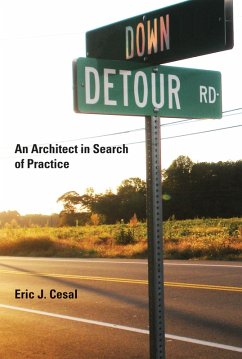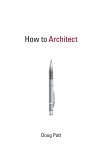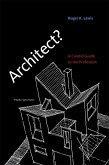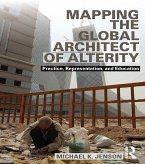A young architect's search for new architectural values in a time of economic crisis.
I paused at the stoop and thought this could be the basis of a good book. The story of a young man who went deep into the bowels of the academy in order to understand architecture and found it had been on his doorstep all along. This had an air of hokeyness about it, but it had been a tough couple of days and I was feeling sentimental about the warm confines of the studio which had unceremoniously discharged me upon the world.—from Down Detour Road
What does it say about the value of architecture that as the world faces economic and ecological crises, unprecedented numbers of architects are out of work? This is the question that confronted architect Eric Cesal as he finished graduate school at the onset of the worst financial meltdown in a generation. Down Detour Road is his journey: one that begins off-course, and ends in a hopeful new vision of architecture. Like many architects of his generation, Cesal confronts a cold reality. Architects may assure each other of their own importance, but society has come to view architecture as a luxury it can do without. For Cesal, this recognition becomes an occasion to rethink architecture and its value from the very core. He argues that the times demand a new architecture, an empowered architecture that is useful and relevant. New architectural values emerge as our cultural values shift: from high risks to safe bets, from strong portfolios to strong communities, and from clean lines to clean energy.This is not a book about how to run a firm or a profession; it doesn't predict the future of architectural form or aesthetics. It is a personal story—and in many ways a generational one: a story that follows its author on a winding detour across the country, around the profession, and into a new architectural reality.
I paused at the stoop and thought this could be the basis of a good book. The story of a young man who went deep into the bowels of the academy in order to understand architecture and found it had been on his doorstep all along. This had an air of hokeyness about it, but it had been a tough couple of days and I was feeling sentimental about the warm confines of the studio which had unceremoniously discharged me upon the world.—from Down Detour Road
What does it say about the value of architecture that as the world faces economic and ecological crises, unprecedented numbers of architects are out of work? This is the question that confronted architect Eric Cesal as he finished graduate school at the onset of the worst financial meltdown in a generation. Down Detour Road is his journey: one that begins off-course, and ends in a hopeful new vision of architecture. Like many architects of his generation, Cesal confronts a cold reality. Architects may assure each other of their own importance, but society has come to view architecture as a luxury it can do without. For Cesal, this recognition becomes an occasion to rethink architecture and its value from the very core. He argues that the times demand a new architecture, an empowered architecture that is useful and relevant. New architectural values emerge as our cultural values shift: from high risks to safe bets, from strong portfolios to strong communities, and from clean lines to clean energy.This is not a book about how to run a firm or a profession; it doesn't predict the future of architectural form or aesthetics. It is a personal story—and in many ways a generational one: a story that follows its author on a winding detour across the country, around the profession, and into a new architectural reality.
Dieser Download kann aus rechtlichen Gründen nur mit Rechnungsadresse in A, B, BG, CY, CZ, D, DK, EW, E, FIN, F, GR, HR, H, IRL, I, LT, L, LR, M, NL, PL, P, R, S, SLO, SK ausgeliefert werden.









